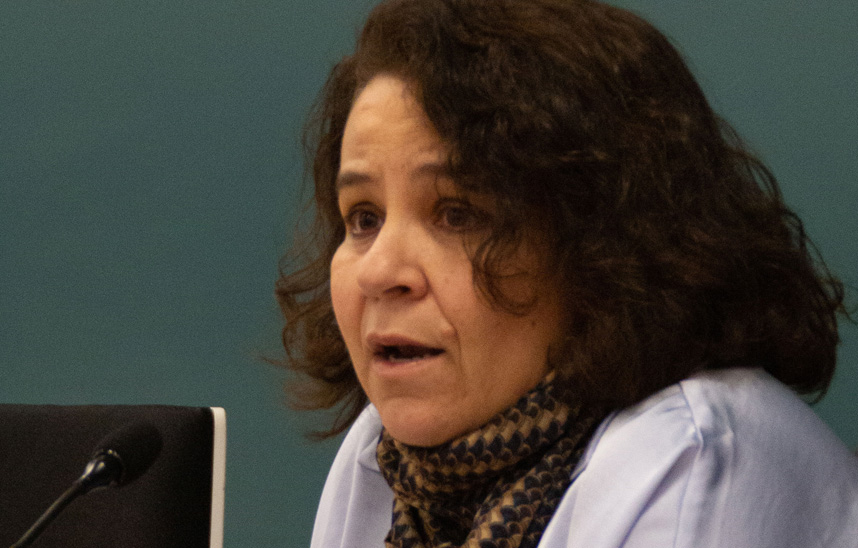Is knowledge possible in a cultural space dominated by sophistry?
The Colombian professor and philosopher Claudia Carbonell teaches the seminar for teachers of the department de Philosophy

PhotoJorgeLuis Canarias/
17 | 11 | 2022
Last November 8, the Colombian professor and philosopher Claudia Carbonell gave the seminar of teachers of the department of Philosophy with the degree scroll: "Drama and image of the Philosophy in late Plato."
Professor Carbonell began her speech by stressing the importance of the prologues of the dialogues, and how they explained or contextualized the work. Plato in his own writings, for example, in the Phaedrus and in Letter VII, criticizes writing on multiple occasions, going against the poetic and sophist tradition, as he explained. Even so, "he was a very prolific writer," he assured. As she explained, this might seem contradictory; however, unlike many other philosophers, Plato did not write treatises, but dialogues . From agreement with the professor, for Plato, dialogue is the paradigm of philosophical life, and that is precisely what is sought to be represented in the Socratic dialogues.
One place where it is most clearly seen that the most important thing for the Greek was not the writing, is in the prologues of his texts. The professor demonstrated this through a brilliant explanation of the prologue of the Theaetetus. There is a dialogue between Terpsion and Euclid. They both talk about the lamentable state of health of Theaetetus because of dysentery. It is precisely talking about it, that Euclid comments that Socrates had a conversation with Theaetetus, and that the latter told it to him. Therefore, Terpsion asks Euclid to tell the conversation (of Socrates with Teetetus) to him as well.
It is at this point that Euclid reveals that he would not be able to remember from report the conversation, so when he got home after talking to Socrates he wrote it down bit by bit. He even had to consult Socrates again about the details he had already forgotten. In this way, Plato demonstrates that writing is beneficial as tool, as a device. It allows one to overcome the fuzziness of report, gives room for rewriting in case of correction, and introduces order into thought.
Finally, Carbonell concluded that, despite the importance and usefulness of writing for Plato, the philosopher at no time establishes that this tool should replace the true Philosophy: that of dialogue.
The philosophical meeting was attended by a classroom full of students, doctoral students and professors, among others, the Professor Emeritus of the University Rafael Alvira, who intervened telematically.




